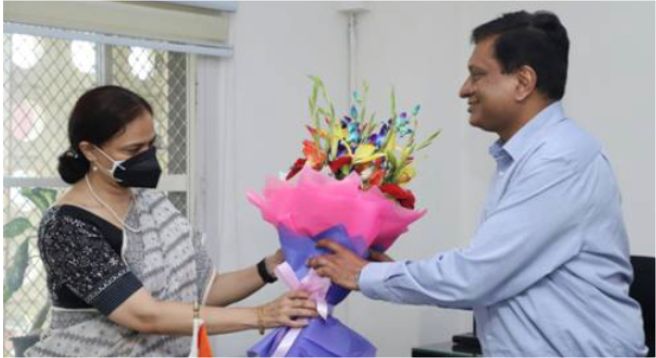Apurva Chandra Monday assumed charge as Secretary, Ministry of Information and Broadcasting (MIB) at a time when his political bosses would like to see several tasks taken up successfully, including aggressive dissemination of government achievements, as the crucial elections of northern State of Uttar Pradesh are scheduled in the first quarter of 2022.
However this apart, Chandra also has several challenges as the country’s new digital regulations, especially those relating to online content and some other obligations, have been legally challenged by several stakeholders and are pending in various courts, including the Supreme Court of India.
The Bombay High Court recently stayed certain parts of the digital regulations saying coercive actions should not be taken by the government against the petitioners, a digital legal news publisher The Leaflet and a Mumbai-based journalist.
The petitions filed by digital news portal `The Leaflet’ and journalist Nikhil Wagle had claimed that the new regulations were ‘vague’, ‘draconian’, and bound to have a ‘chilling effect’ on the freedom of press and right to free speech guaranteed by the Constitution, a PTI report from Mumbai had stated earlier this month.
The Leaflet had argued earlier that the new rules were a brazen attempt to regulate online content. They go beyond the parameters set by the Information Technology Act and limits set under Article 19 of the Constitution, the petitioner had contended.
Interestingly, the Kerala High Court had given interim relief in a similar case to Live Law, digital publishers of legal news. The same court had directed the government or its agencies against taking any coercive action till the case is disposed of against members of News Broadcasters Association, an industry body made of news TV channels, over non-compliance of the IT Rules, as the news TV channels were seeking certain exemptions.
The federal government has requested the Supreme Court, also hearing a case relating to IT Rules or the digital regulations, to transfer all other cases in lower cases to itself with an aim to hear them together as all of them challenge the implementation of the new digital norms for varied reasons.
Digital regulations apart, MIB had also amended sometime back the Cable TV Networks (Regulation) Act mandating all TV channels to have certain officials like chief compliance officer and mandating TV channels be compulsorily part of a industry body that had self-regulatory organization attached to it.
This provision has put in a quandary small and some foreign TV channels with limited resources and exposure in India. Being made to become a member of any industry organization (like the IBF, NBA, IAMAI or NBF) would put pressure on small TV channels, especially foreign ones, and add to their expenditure, which was avoidable, a foreign news channel with limited distribution in India opined.
Chandra and his team would have to navigate these regulatory challenges being faced by broadcasters in India, already under financial pressure in the aftermath of the pandemic and a sluggish economy.
Meanwhile, Hindustan Times few days back also reported that India’s federal government was mulling a single over-arching media law to encompass the print, TV and online businesses.
The idea was to have an umbrella law that will cover print, electronic and digital media, apart from cinema, HT reported quoting unnamed government officials.
“According to one of the officials, the new law will draw elements from the Cable Television Network Act, Cinematograph Act, Press Council Act, and the new digital media guidelines. The space is evolving,” the report stated basing its observations on feedback from people in the know.
The idea of such an omnibus media law could be traced back to the Communications Convergence Bill, introduced in Parliament by the then BJP-led government mid-2001. The Bill, red flagged at over 70 places by then policy-makers, lapsed with the dissolution of Parliament in January 2004. A BJP-led coalition has been in power in India since 2014.
While pointing out that the idea of a super media law was still in an early discussion stage, the HT report said Chandra’s predecessor Amit Khare did not respond to requests for comments.
With a background in labour and energy sectors — MIB’s new Secretary was helming the Labour Ministry before he was transferred to MIB — Chandra probably would have to hit the ground running as his plate seems full with to-do assignments.
 TRAI revamps website to connect with wider audience
TRAI revamps website to connect with wider audience  Prime Video to limit in India number of TV sets having access per subscription
Prime Video to limit in India number of TV sets having access per subscription  Delhi HC orders meta to remove deepfake videos of Rajat Sharma
Delhi HC orders meta to remove deepfake videos of Rajat Sharma 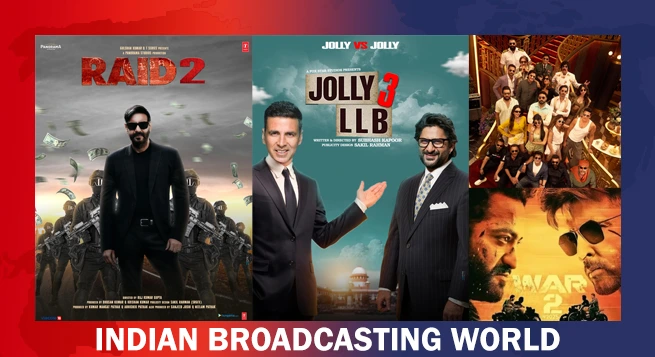 Yearender 2024 most anticipated film sequels of 2025
Yearender 2024 most anticipated film sequels of 2025 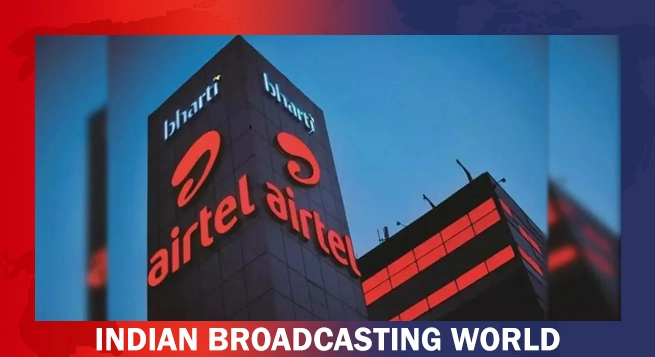 Airtel faces outage, users across India report network disruptions
Airtel faces outage, users across India report network disruptions 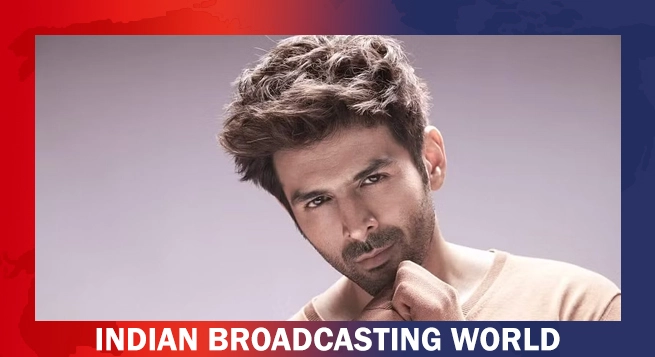 Kartik Aaryan to star in ‘Tu Meri Main Tera, Main Tera Tu Meri’
Kartik Aaryan to star in ‘Tu Meri Main Tera, Main Tera Tu Meri’  ‘MasterChef India’ returns with a celebrity twist
‘MasterChef India’ returns with a celebrity twist 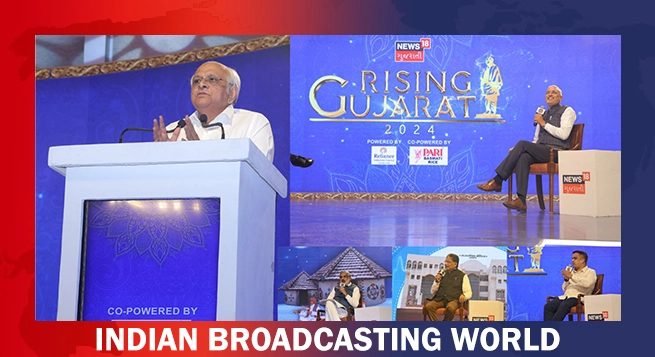 News18 Gujarati hosts ‘Rising Gujarat’
News18 Gujarati hosts ‘Rising Gujarat’ 


